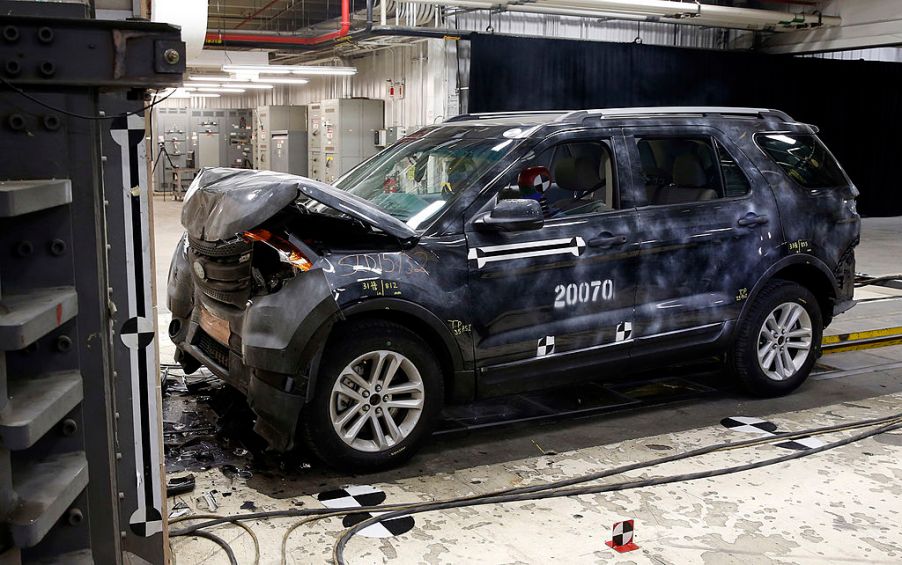
Are Pickup Trucks Safer Than SUVs?
The old theory states “the bigger, the better,” but is the same true for vehicles? Trucks offer a variety of functional and off-roading capabilities, while SUVs offer cargo space and family convenience. But when paired up, which one comes out on top for safety? Obviously, the bigger one will keep you safer. Right? When it comes to truck and SUV safety, there have been many advancements in the last few years.
Are trucks and SUVs safe?

The biggest difference between SUVs and trucks is the general design. According to Edmunds, SUVs can be based on both passenger car and truck platforms and contain bigger, enclosed cargo areas than your standard car. SUVs “offer available four-wheel or all-wheel drive and raised ground clearance in combination with a two- or four-door body.”
Trucks, on the other hand, can be two or four doors but have “an exposed cargo bed.” But there are a lot more design differences than just that. Trucks are built by bolting passenger compartments on top of a strong frame or a body-on-frame design. Passenger cars and most SUVs use a unibody design, which increases space in the cabin and lightens the vehicle. So a truck’s body is stronger and better able to perform the heavy-duty tasks you need it to. But which is the safer vehicle, a truck or an SUV?
Why bigger isn’t always safer when it comes to trucks and SUVs
There has always been an argument that physics would dictate the heavier the vehicle, the better it would perform against a crash. While trucks and SUVs may have better crash outcomes than, say, a smaller, lighter vehicle, that doesn’t mean the biggest thing to drive is always the safest.
In fact, scientists at Berkeley find that “most cars are safer than the average SUV, while pickup trucks are much less safe than all types.” By comparing driver deaths against the vehicle type, Berkeley found that “drivers of pickup trucks are at even greater risk than drivers of SUVs.”
First of all, most automakers invest less money into advanced safety features in trucks than in SUVs because SUVs are more aimed at the family market. That means that overall, SUVs are equipped with better safety technology. More recently, this has changed. Automakers want pickup trucks to be family vehicles and have been outfitting trucks as such.
According to the data, bigger vehicles may have been the safer option decades ago, but the “Force=Mass x Acceleration” formula of days past doesn’t matter much anymore. Not only do drivers have more than just collisions to contend with, but the numbers simply prove that cars have become safer than their larger counterparts.
Insurance Institute for Highway Safety data finds that passenger car deaths have dropped while truck deaths have remained almost the same. Because of a truck’s general design, a truck’s forward-biased weight means it’s more likely to experience spins, rollovers, and other types of single-vehicle accidents than cars and SUVs. Additionally, statistics show that frontal crashes are more likely to be fatal for trucks as well. The same statistics found SUVs to be associated with the least amount of deaths.
The pros and cons of SUVs and trucks, safety aside
Trucks can typically haul/tow more than sport utility vehicles. However, an SUV’s smaller size typically offers better fuel efficiency. According to It Still Runs, they differ in a lot of different areas as well. Trucks and SUVs have different weight distributions, which means they handle differently. Unless a truck’s cargo bed is full, traction and handling can be problematic. SUVs have better-balanced weight and often better-balanced handling. An SUV offers less flexibility in cargo than a truck, however.
SUVs tend to handle better because of the smaller size but also offer enough seating and comfort for the whole family. When it comes to ease of access, versatile cargo space, towing capacity, and work capability, nothing beats a truck.



